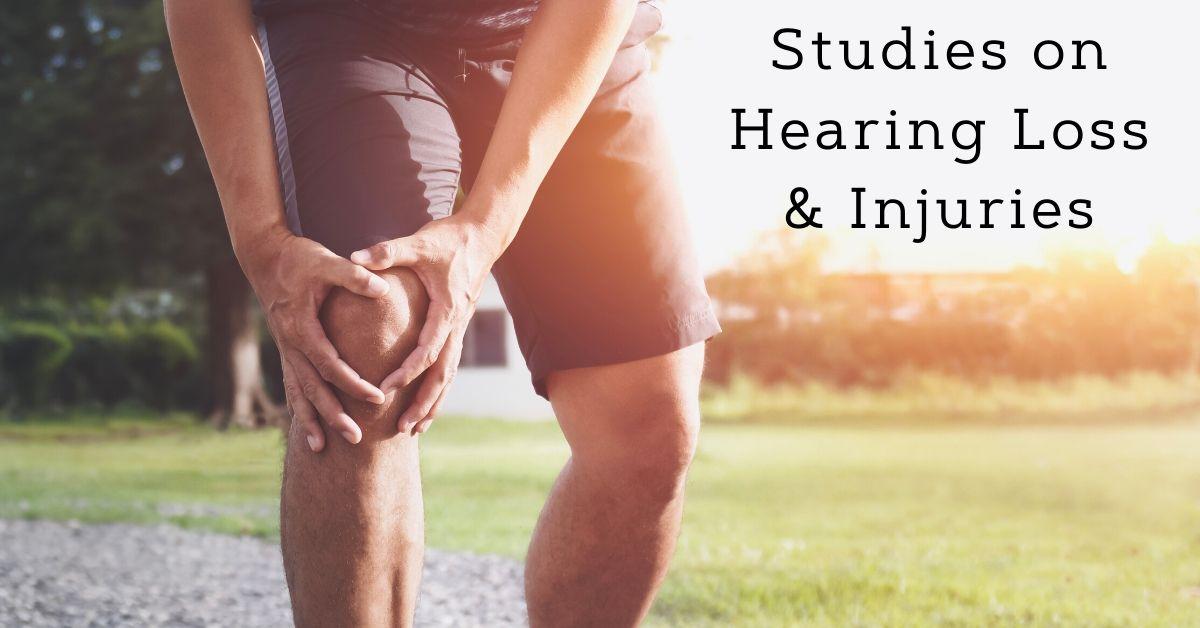Hearing loss is a serious matter. When hearing loss is ignored, you become at risk for many dangerous side effects that include depression, irritability, fatigue, and decreased focus, which can lead to accidents. We face harmful noises everyday at work, at home and during recreation. Exposure to any noise over 85 decibels can damage your hearing over time but as decibels rise your hearing can be affected more suddenly. Ear protection can be helpful, but here are some other possible causes of hearing loss.
Ear injuries
Our ears are responsible for more than just our hearing. The inner ear helps us to stay balanced so ear injuries can affect both hearing and balance. Some common ear injuries include cuts, scrapes, burns, the insertion of a foreign object into the ear canal or sudden loud noises like explosions and gunfire. Another common cause is sudden air pressure changes in instances of air travel or scuba diving. If the ear does not have proper time to equalize, a sudden spike in air pressure can rupture an eardrum.
The dangers of head injuries to your hearing
Falls, blows to the head and sports injuries can damage parts of the ear, like the eardrum, ear canal, ossicles, cochlea, or the vestibular nerve. Often these injuries can be very serious, causing people to suffer from hearing loss, loss of balance and pain. These injuries may be minor depending on the level of impact, but when severe, surgery may be needed to correct the problem.
Traumatic brain injuries, concussions, and their effects on the hearing
When an impact to the head is severe it may result in traumatic brain injury, which can cause a variety of problems related to the ear, including hearing loss, dizziness, vertigo, and tinnitus. Often the impact can cause damage to the auditory pathway, which is responsible for sending sound information from the inner ear to the brain to be processed. Serious irreparable damage to the inner ear include ruptured eardrums, damage to the middle ear, damage to the inner ear, and disruption of blood flow to the cochlear nerve. The tiny fragile hair cells of the inner ear, called cilia, are responsible for picking up sound waves and are also very vulnerable to injury sustained from head trauma.
When to seek treatment
If you witness someone suffering an impact to their head and they appear dizzy, it’s a sign that the impact could be serious. Dizziness and vertigo are also very common symptoms associated with damage to the ears from traumatic brain injury. If someone expresses difficulty in comprehending speech, complains of ringing in the ears from no external source or seems extremely sensitive to sound, this may indicate a serious injury to the ears. If there is any blood in the ear canal then a patient should see a doctor immediately as this can indicate a torn eardrum. If the muscles of the face are moving asymmetrically this may call for emergency surgery.
- Tympanoplasty: Many eardrum injuries heal on their own over time but it is always best to visit an otolaryngologist also known as an ear, nose and throat specialist for an expert analysis. If an eardrum does not heal on its own there is a surgery called tympanoplasty that often can correct the problem.
- Vestibular therapy: This is a type of physical therapy that can help restore balance skills and help regain coordination if balance is compromised due to an ear injury.
- Hearing aids: If a hearing issue can not be reversed, often hearing aids can be used to supplement for your lost hearing. Hearing aids pick up the sounds around you using a microphone and convert the sounds into electronic signals that are amplified into your ear canal. This helps amplify the sounds around you.
Ear injuries can be prevented
While not every ear injury can be prevented it is best to take precautions. Wear a helmet when playing sports and riding a bike and make sure the fit is snug to protect your head and ears. If you do have an ear injury do not delay to seek proper medical help to make sure the problem does not get worse.

